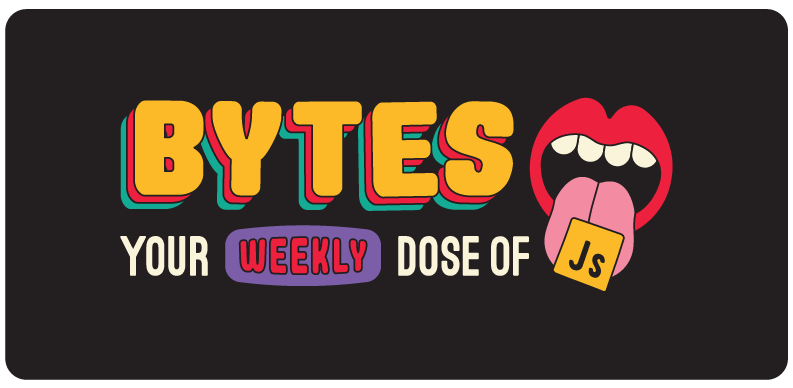React Native sneak attack

Today’s issue: Necking with Microsoft, using the Nintendo Wii to overthrow big tech, and firing useMemo into the sun.
Welcome to #386.

The Main Thing

React Miami devs when someone asks why they're all wearing the same shirt
React Native sneak attack
Earlier this month, while you were trying to decide if you had enough tanning oil and daddy issues to fit in at React Miami, the React Native team snuck up on all of us and released React Native 0.79.
This is already their third release of 2025, which is pretty surprising considering that React Native has given us just three releases per year since 2019.
And while this 0.79 release isn’t packed with a bunch of shiny new APIs, it does bring some nice under-the-hood improvements and quality-of-life upgrades that React Native devs should appreciate. Let’s take a closer look:
-
Metro speed boost – The React Native bundler now uses deferred hashing to improve startup times by over 3x (and more for larger projects). The
exportsandimportsfields inpackage.jsonare also stable now, improving compatibility with modern npm dependencies. -
JSC is moving out – The RN team is off-loading JavaScriptCore to a new community-maintained package, which reduces the API surface area of React Native and makes it easier for the team to update the JSC version more frequently (because it’ll follow its own separate release schedule).
-
Faster Android app startup – The JS bundle now gets shipped uncompressed inside the APK by default, which means your app will start faster. Discord apparently shaved 400ms off its TTI with a one-line change – and if you’re using Discord on mobile often enough to notice that, we’ve got bigger things to worry about.
Bottom Line: I told you it’s not the flashiest release ever, but it’s great to see the React Native team shipping quality updates at such a consistent pace.

The Main Thing

When I try to vibe code at my real job
The first AI Agent for large codebases
Which means you can actually use it at your real job, instead of just for vibe-coding side projects.
Augment is available in VS Code and JetBrains, and its Context Engine analyzes your entire codebase in real time, so that all of its recommendations have proper context.
That’s how it ranks #1 in various AI code quality benchmarks, while also providing multi-file edits, full PR creation, and other cool features:
-
Persistent Memory helps it learn your coding style, remember your previous refactors, and adjust to your infra over time.
-
Integrated workflows with GitHub, Jira, and 100+ MCP tools let you go from ticket ➡️ code ➡️ PR without switching tools.
-
Visual debugging lets you drag in a screenshot, then have Augment identify all the UI issues, suggest fixes, and run the relevant tests.
Try out the developer plan for free – it comes with all the features and unlimited usage, no credits required.

Cool Bits
-
Addy Osmani and Hassan Djirdeh created Advanced React in the Wild – a collection of detailed production case studies for ambitious React projects over the past 3 years.
-
Llama 4 is live on Lambda’s Inference API with no rate limits, no pricing tiers, no nonsense. Just clean JSON in, smart tokens out – pay only for the tokens you use, at the lowest cost you’ll find. [sponsored]
-
Philip Laine wrote about getting forked by Microsoft, which sounds like both an HR violation and a great tagline for a novelty t-shirt.
-
The React team just released the React Compiler RC.
-
Lazar Nikolov is hosting a hands-on debugging session with a real-world React + Laravel app that will show you how to use Sentry to track errors across the full context of your app, how to set up Session Replays without building out complex repos, and lots more. [sponsored]
-
Alex Kladov wrote about the things Zig comptime won’t do. But maybe it would consider doing them if you would just ask nicely for once.
-
zodest is a Zod-based CLI builder that’s flexible and fully type-safe. It also implies the existence of a tool called
Zodder. -
Quentin wrote about the View Transition API and how it integrates with Next.js.
-
Alex Haydock wrote about how he is hosting his blog on a Nintendo Wii – which is almost as cool as the LAN party I hosted with my Wii in 2007.
-
CarbonQA provides QA services for dev teams, so you’ll never have to QA test your own app ever again. They work in your tools, talk with your team on Slack, and let your engineers spend more of their time engineering. [sponsored]
-
RampenSau is a lightweight color generation library that uses “hue cycling and easing functions to generate pleasing color ramps.” I’m not sure what that last part means, but I think pleasing color ramps are one of the perks that Lumon offers its severed employees.
-
Andrew Sampson created Hako – a fork of PrimJS designed to provide an embeddable, secure, and performant JavaScript engine. All I can say is that this guy better not work for Microsoft.